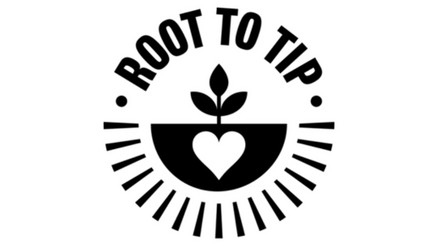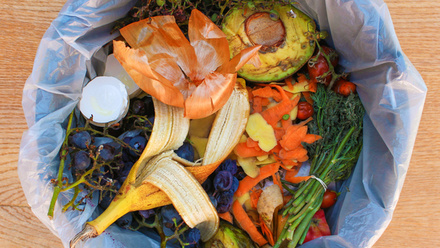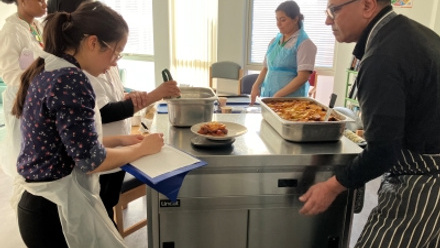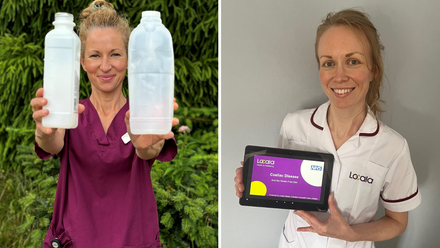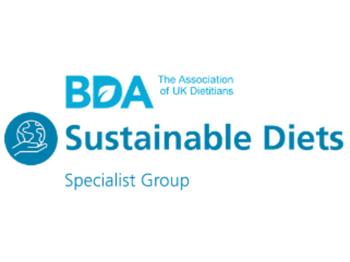
If you’ve read anything about climate change and environmental issues surrounding food production, such as land and water use, greenhouse gas emissions and soil degradation, then you will know that global food production constitutes the single largest driver of environmental degradation.
The EAT Lancet report in 2019 laid out the changes that are necessary worldwide to meet the UN Sustainable Development Goals and at the same time provide healthy diets. The BDA’s own One Blue Dot project lays out the evidence for the environmental impact of different foods and looks at practical changes that would make the UK diet more environmentally sustainable.
The question here is why that should matter to dietitians? Dietitians are on the forefront of shaping public healthy eating policies and providing dietary advice to members of the public. We are highly trained in interpreting scientific evidence and communicating that into practical guidelines and advice for people. We have the counselling skills needed to bring about changes in behaviour. Therefore, I would argue that it is our obligation to use these skills and knowledge to be part of the change. If you care about the planet and understand the need to act, then incorporating sustainability into your practice gives you the opportunity to help.
Another reason environmental sustainability should matter to all dietitians is because the aim of protecting the planet is equally to protect humans. By definition:
“Sustainable diets are those diets with low environmental impacts which contribute to food and nutrition security and to healthy life for present and future generations. Sustainable diets are protective and respectful of biodiversity and ecosystems, culturally acceptable, accessible, economically fair and affordable; nutritionally adequate, safe and healthy; while optimizing natural and human resources.” FAO, 2010, Sustainable Diets and Biodiversity.
This definition incorporates everything dietitians consider when helping the public. Their health, the accessibility and affordability of food, the cultural differences between our clients, and primarily the nutritional adequacy of their diet. By ensuring our diets are sustainable and protecting the environment we are protecting public health and protecting our jobs for the future.
Environmental sustainability and food production is complex. Eating a sustainable diet incorporates a spectrum of issues; the way our food is produced, how it is transported, how it is processed and packaged, as well as how it is purchased and used by the end user. Eating sustainably must consider land use, water use, environmental pollution, energy use, waste production and food waste. It can feel overwhelming and as dietitians our roles are variable. Those involved in research and policy are perfectly place to represent dietitians by collaborating with other sectors, those in public health can ensure sustainability is always part of the agenda and those in primary and secondary care can help promote sustainable diets, to clients, other health professionals and employers.
If you reflect on your practice there will be several ways by which you could make a difference. We can all incorporate sustainability into our practice. Any advice we give should be mindful of the environmental impact our advice could have. Here are some examples for a dietitian working in secondary care; when encouraging an increase in protein intake, be mindful of suggesting a variety of sustainable sources, when advising on the Eat Well Guide highlight that this way of eating brings benefits to the planet, help your clients reduce food waste (and save money at the same time!), and ask your clients to dispose of their supplement packaging responsibly.
Whist protecting our environment is important, it is a dietitians’ primary role to protect our clients. That is why dietetic involvement in sustainable issues is paramount. Shifting the problem from one area to another e.g. reducing GHG emissions by reducing red meat intake, but increasing iron deficiency anaemia in children is not a good solution. Dietitians can be part of creating solutions that focus on long-term nutritional adequacy of the diet. Whenever we give dietary advice or are involved with food production or policy we can and should always be thinking with two hats on, how can we optimise the nutrition and how can we make that environmentally sustainable.
Whilst universities develop sustainability on the curriculum for current dietetic students, those already qualified must reflect on their own knowledge and practice and engage with learning opportunities. Check out the BDA’s Sustainable September events and join the Sustainable Diets group to access CPD opportunities.
Further reading


